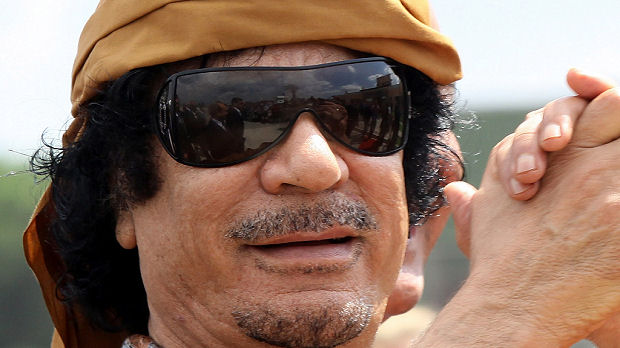Gaddafi not the only victim of Libya’s revolution
The Gaddafi regime may not be the only casualty of events over the past six months. Africa’s most powerful nations may have been compromised by their dealings with Libya under the discredited colonel.

The fall of Muammar Gaddafi has shed a harsh light on those who may or may not have done business with his regime over his 42 years in power.
This week saw British Prime Minister David Cameron promising to look into accusations that British secret services helped with the kidnapping of Gaddafi’s opponents.
And on 31 August Channel 4 News Chief Correspondent Alex Thomson reported on the links between Colonel Gaddafi and the firm General Dynamics UK, which makes and exports sophisticated command and control systems.
Discredited reputations
In the course of more than four decades, the colonel also established relations with governments, and the political opponents of governments, across the African continent.
After failing to assume Colonel Nasser’s mantle as leader of Arab nationalism, he turned to Africa, where he went on to support to a range of leaders whose reputations have been discredited in the west, from Uganda’s Idi Amin to Mengistu Haile Mariam of Eritrea and Liberia’s Charles Taylor.
President Zuma seems to feel that personal loyalty thing. No-one else feels honour-bound in the way Zuma does. Andy Weir, Africa Confidential
In sub-Saharan Africa, meanwhile, Gaddafi has strong ties with South Africa. Libya was one of the African National Congress’s strongest supporters at a time when the ANC was outlawed in South Africa. Nelson Mandela referred to the colonel as “my brother leader”.
It may explain South Africa’s reluctance to acknowledge the National Transitional Council (NTC) as Libya’s new governing body, despite the fact that the NTC has so far secured recognition from more than 60 countries. And the African Union has said it will only recognise an inclusive government in the country, one that involves members of the old regime.
Andy Weir, associate editor of Africa Confidential, told Channel 4 News: “South African President Jacob Zuma feels a strong loyalty towards Gaddafi. He’s led delegations to Tripoli when they were trying to negotiate out of the crisis.
“Zuma seems to feel that personal loyalty thing. I’m pretty sure that no-one else feels honour-bound in the way Zuma does.”
But diplomatically, South Africa has not emerged well from the unrest that has seized north Africa this year. Having delayed recognition of Alassane Ouattara’s victory in Ivory Coast’s presidential election earlier this year, the Zuma government’s refusal to recognise Libya’s new rulers threatens to undermine its influence on the continent.
Ambivalent relationship
Whatever the ties between Libya and the ANC, the fact is that it has never been in the interests of the powerhouse African economies – including South Africa, Nigeria, Egypt – to forge strong alliances with Muammar Gaddafi. His influence has mainly resided with smaller countries.
Algeria, another of the continent’s big economies, also remains ambivalent towards its Mahgreb neighbour. It has a poor relationship with the NTC, which represents the forces of Arab revolution that it is keen to suppress within its own borders. The country’s rulers are suspected of helping Gaddafi and have been criticised for not doing enough to support the Libyan rebels.
Algeria definitely won’t want to have anything to do with Gaddafi himself. John Hamilton, Cross-Border Information
Yet the fact that they have given refuge to members of Gaddafi’s family – his wife Safiya, his daughter Ayesha, and two of his sons, Hannibal and Muhammed – has further complicated the situation.
“Taking in the Gaddafi family members, who the National Transitional Council want to try for corruption, worsened Algeria’s relationship with Libya,” according to John Hamilton of Cross-Border Information. “Algeria definitely won’t want to have anything to do with Gaddafi himself.
“I don’t know what they’ve done with the Gadaffis they’ve got, but the NTC want them to be sent back. So the whole thing’s a ghastly mess. They’re feeling very nervous about the changes.
“Algeria is incredibly secretive, and there’s a very restive population who know they’re not getting a good deal from their leaders. They look across at Libya, Egypt and Tunisia and just see that there are political changes going on which they’re not enjoying in their own country.”
-
Latest news
-
‘I violated my moral compass working for Trump,’ former lawyer testifies3m

-
Working class creatives in film and TV at lowest level in decade5m

-
Israeli police investigating attack on Gaza aid convoy4m

-
Biden announces major tariff increase on Chinese-imported green tech3m

-
‘If NHS can afford it, people with obesity should have Semaglutide,’ says weight loss expert5m

-




